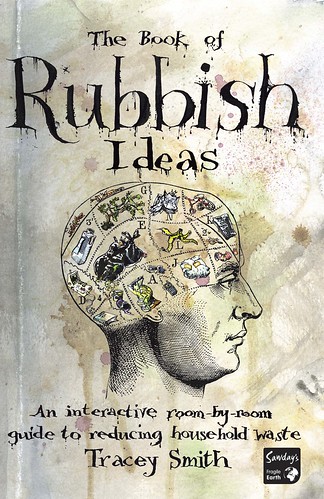But being environmentally friendly need not cost a thing, according to the 2008 Environmental Attitudes Report.

Claire Russell with her family
I thought you might also be interested in the fact-packed conclusions from the research they carried out recently.
43 % of British consumers say they are finding it harder to lead an environmentally friendly lifestyle because of the credit crunch, according to the 2008 Environmental Attitudes Report from Click4Carbon.com, the environmental portal, which has polled the views of a representative sample of 2,026 British adults with research house YouGov.
The credit crunch is affecting consumers’ environmental efforts across the country in equal measure as Brits recoil from incurring any additional expenses to being green in uncertain economic conditions. Only 13 % of consumers say they are happy to pay directly to offset their carbon footprint and yet a startling 60 % of Brits say that they will avoid using their home’s heating as much this winter in light of the rising cost of fuel bills. However, being green does not have to come at a cost according to the 2008 Environmental Attitudes Report.
“Environmental issues have rightly been high on the agenda in recent times, but the progress that has been made so far risks being compromised because of a perception amongst consumers that being green costs more,” says Claire Russell, co-founder of Click4Carbon.com. “There is plenty that people can do in their daily lives that can reduce their impact on the environment that won’t cost anything and can in fact save them money – whether that be using a green search engine or walking to work or reusing carrier bags.”
Younger Brits show more reckless attitude towards environment
The 2008 Environmental Attitudes Report revealed a major discrepancy between the attitudes of younger British consumers towards the environment. While 79 % of British consumers in general have proactively looked to reduce their energy consumption in the past year, only 62 % of those aged 18-24 have done so. Similarly, only 63 % of those aged 18-24 have taken very simple measures to reduce their environmental impact, such as using energy efficient light bulbs, compared with the national average of 80 % who have invested in cheap energy saving measures.
“It is quite worrying that Britain’s future generation systematically shows the least intention of living a more environmentally friendly life,” adds Claire. “While major inroads have been made to raising environmental issues on the public agenda, these are still failing to resonate with the younger audience and this is undoubtedly due to the misconceptions around what it actually takes to be green. The credit crunch is no excuse for abandoning intentions for being more environmentally friendly, however there remains a major educational gap as to the effective measures consumers can take that don’t cost them a thing.”
Recession impact
79 % of British consumers claim to have proactively looked to reduce their energy consumption in the past year, a concern more seriously held by 83 % of women compared to 76 % of men. The impact of the fuel crisis is evident with 38 % of British consumers are saying that they are using their cars less now than a year ago because of economic reasons, while just 22 % claiming to be motivated to use their cars less for environmental reasons.
However, there are still good intentions amongst British consumers as one in five (20 %) have switched energy supplier to be more environmentally friendly.
Hybrid cars are still a contentious issue, but an increasing number of people are warming to the idea of driving one. 22 % would consider buying an electric or hybrid engine car, while a further 20 % say they are undecided, but could be convinced. Having to invest significant amounts to be green would seem to be a common perception amongst British consumers as 57 % have considered further big-ticket energy saving actions, such as insulating their houses. The Midlands and Wales lead the country in that regard with 61 % compared to just 49 % of the Scottish.
“The government needs to be doing more to educate people on the practical realities of being green and not simply focus on big-ticket, expensive changes such as loft insulations,” adds Claire. “In fact, being environmentally friendly does not need to cost anything and can easily lead to an overall saving for the consumer. There is no reason why Britain can’t continue to be environmentally friendly in a recession but there is a major misconception that you need big gestures like insulating your house, or buying a new car. As The Book of Rubbish Ideas repeatedly states, there’s a great deal you can do to save money and reduce your impact on the environment. It is all about thinking big but acting in small manageable steps.”
Rubbishly yours,
TS x


‘Green’ versions of products do cost more than standard versions – because they foist their costs off on to the environment. As such, people who try and maintain the same consumer-driven lifestyle in a greener way will find it more expensive.
But people who understand that a simpler life is a greener, happier and healthier life will rapidly find that it’s a cheaper life as well. We just don’t need all this ’stuff’.
Hi Emma – you’re so right, they do carry a premium sometimes, but as you say, there’s often far more to it than meets the eye.
As a consumer of anything, I urge you to look deeper than the wrapping. See what that retailer/manufacturer is all about then make your judgement and spend your money wisely.
TS
x